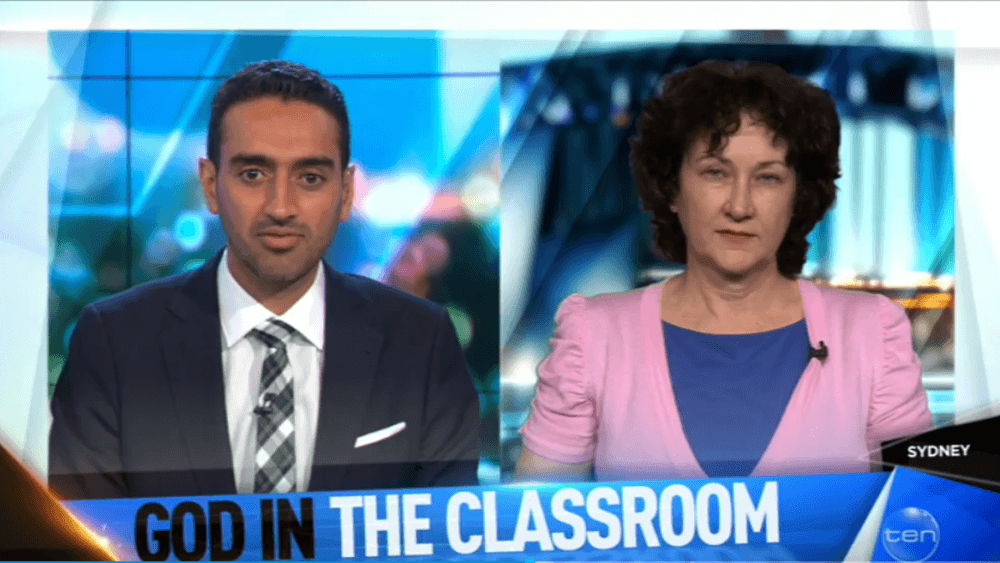The row over Scripture in schools has hit the mainstream news, with popular news programmes The Drum and The Project featuring segments on the issue on Thursday night.
“Religious kids should be sent to religious schools,” said Josh Bornstein, a Melbourne-based lawyer, on The Drum last night. “People go to state schools to avoid religion.”
But Christians who teach Scripture (SRE in NSW, RI in Qld, SRI in Victoria) in schools should welcome criticism. It can only help us improve our teaching and our lesson plans.
Scripture is a sign of welcome. – John Sandeman
Many Christians are strong supporters of state schools. Do we really want some sort of religious apartheid in Australia, where Muslims exclusively go to their schools, Christians to theirs and atheists to non-religious schools?
The great strength of state schools is that these communities mix. At the school I teach Scripture at there are Christian, Muslim, Buddhist, Bahai and Hindu Scripture classes, and the NSW non-religious ethics programme as well. As a school with refugee children, Scripture is a sign of welcome.
Over on The Project, anti-Scripture in schools campaigner Catherine Walsh said that her daughter “was told by the Scripture teacher that her mother was going to hell. Because I have children and I’m not married, I would be going to hell.”
This would be news to the Virgin Mary who was pregnant with Jesus, though unmarried, and married a man who was not the father of her child.
As Scripture teachers we need to be careful not to scandalise our students – and to teach the Bible sticking to a curriculum that respects where the kids are at. Jesus said to his disciples that some truths were too hard to bear for them and they were a tough bunch of adults. How much more does this apply to students? We need to teach gently.
[Scripture teachers] do not want to coerce anybody. They should not want to manipulate anyone. – John Sandeman
Walsh says, “The policy that’s suspended at the moment is called the ‘controversial issues in schools’ policy, and under that policy teachers in schools are not to coerce students into partisan groups, and anybody who visits schools are not to try to coerce students into partisan groups. So, during SRE, it’s not general religious education – it’s instruction, and indoctrination.”
This refers to a NSW situation, and it is more accurate to say that Scripture is authorised by the provisions of an Act of parliament – but in any case, Scripture teachers should follow the principles of that policy. They do not want to coerce anybody. They should not want to manipulate anyone.
Scripture is voluntary, and one of its clear teachings is to love our neighbours as ourselves, and so teach respect for other students.
Instruction is common to all education. One of the strengths of teaching scripture in a State school environment is that indoctrination clearly would not work; students are taught how to question sources of information including Scripture teachers.
And that is a good thing.
Pray
Some prayer points to help
Pray that Christians would welcome criticism of the Scripture programme, and that it would help us improve our curriculum and our lessons.



